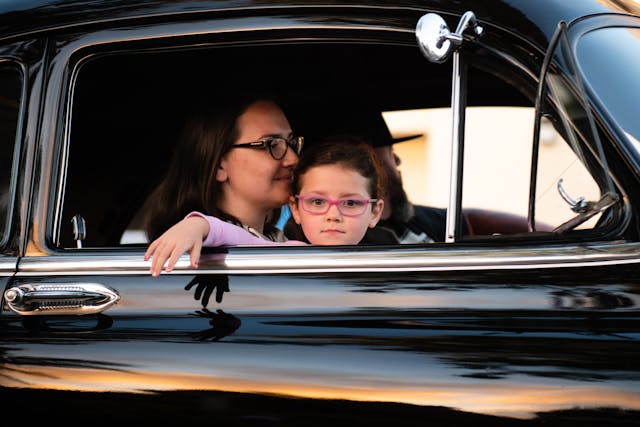Car accidents can have far-reaching consequences, not only for those directly involved but also for their families. When it comes to young or teenage drivers, understanding the scope of legal responsibility and parental liability becomes crucial. Parents often wrestle with the implications of their children’s activities, especially when those activities involve driving. The personal injury lawyers who represent people injured in Las Vegas motor vehicle accidents explore the legal nuances surrounding parental liability in car accidents, offering insights into how parents can navigate these complex situations.

Understanding Legal Responsibility
Driver’s Legal Responsibility
When a car accident occurs, the driver is generally held responsible for their actions behind the wheel. This means that the driver who caused the accident is liable for damages resulting from their negligence, including property damage, medical expenses, and other related costs. Legal responsibility is typically determined based on factors such as traffic laws, eyewitness accounts, and police reports.
Liability of Minors
When the driver involved is a minor, the situation becomes more complicated. Minors, defined as individuals under the age of 18 in most jurisdictions, often lack the financial resources to cover the damages they cause. This financial incapacity shifts the responsibility to their parents or guardians, who then become legally liable for their child’s actions.
Parental Liability Explained
Vicarious Liability
Vicarious liability refers to a legal doctrine where one party is held responsible for the actions of another. In the context of car accidents, vicarious liability often applies to parents of minor children. If a minor is involved in a car accident, the parents can be held vicariously liable for any damages resulting from their child’s actions. This form of liability is based on the premise that parents have a duty to supervise and control their children’s behavior.
Negligent Entrustment
Negligent entrustment occurs when a parent or guardian allows their child to use a vehicle, knowing that the child is an unfit or inexperienced driver. For example, if a parent is aware that their teenager has a history of reckless driving or driving under the influence, yet still permits them to use the family car, the parent can be held liable for resulting accidents. Negligent entrustment essentially places the onus on parents to ensure that their children are capable and responsible drivers before allowing them behind the wheel.
Financial Responsibility Laws
Many states have financial responsibility laws that require parents to assume liability for their minor children’s driving. These laws may mandate that parents carry specific types of insurance coverage to cover potential damages resulting from their child’s driving. Failing to comply with these requirements can result in fines, license suspensions, or other legal penalties.
Insurance Considerations
Family Car Doctrine
The Family Car Doctrine is a legal principle that holds parents liable for accidents caused by family members driving the family vehicle. Under this doctrine, if a vehicle is provided for family use, parents can be responsible for any accidents caused by their children while driving that vehicle. This makes it imperative for parents to understand the extent of their auto insurance coverage and ensure it adequately covers all potential drivers and scenarios.
Umbrella Policies
Given the potential financial liability, parents may consider purchasing an umbrella insurance policy. Umbrella policies provide additional liability coverage beyond the limits of standard auto insurance policies. This extra layer of protection can be invaluable in covering substantial claims that exceed traditional policy limits, thereby safeguarding a family’s financial stability.
Steps Parents Can Take to Mitigate Liability
Open Communication
Maintaining open lines of communication with your teenage drivers is essential. Discuss the importance of safe driving practices, the consequences of reckless behavior, and the legal implications of accidents. Establishing a clear and honest dialogue can encourage responsible behavior and reduce the likelihood of accidents.
Driver Education and Training
Ensure that your teenagers receive proper driver education and training. Enroll them in reputable driving schools that emphasize safe driving techniques and defensive driving. The more knowledgeable and skilled your child is behind the wheel, the lower the risk of accidents.
Monitoring and Restrictions
Implementing monitoring systems, such as GPS tracking or telematics devices, can help you keep track of your teenager’s driving habits. Additionally, setting restrictions on where and when your child can drive can mitigate risks. For example, many states have graduated driver licensing (GDL) systems that impose curfews and passenger limitations on new drivers.
Reviewing Insurance Coverage
Regularly review your auto insurance policy to ensure it provides adequate coverage for all drivers in your household. Discuss with your insurance agent whether additional coverage or an umbrella policy is appropriate given your family’s circumstances and risks.
Understanding the intricacies of legal responsibility and parental liability in car accidents is crucial for parents of teenage drivers. By familiarizing themselves with these legal principles, parents can take proactive measures to mitigate risks and protect their families. From open communication and proper driver education to monitoring and adequate insurance coverage, these steps can help ensure that both parents and children are prepared for the responsibilities that come with driving.
















Add Your Comment